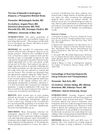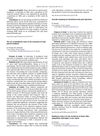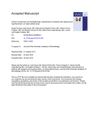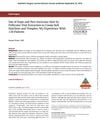 290 citations,
December 2017 in “Journal of The American Academy of Dermatology”
290 citations,
December 2017 in “Journal of The American Academy of Dermatology” Alopecia areata is an autoimmune condition causing hair loss, influenced by genetics, stress, and diet, and may be prevented by a high soy oil diet.
 31 citations,
August 2022 in “Frontiers in Oncology”
31 citations,
August 2022 in “Frontiers in Oncology” Photobiomodulation therapy helps manage cancer treatment side effects but needs more research for optimization.
January 2021 in “Global Dermatology” Cellcurex™ treatment increased hair growth and thickness but caused pain and bleeding.
 June 2019 in “Stem Cell Research”
June 2019 in “Stem Cell Research” Scientists created MUSIi010-A, a stem cell line from a balding man's scalp, to study hair loss and develop potential treatments.
 January 2025 in “bioRxiv (Cold Spring Harbor Laboratory)”
January 2025 in “bioRxiv (Cold Spring Harbor Laboratory)” Rhamnose may help hair growth and pigmentation, making it a potential treatment for hair loss.
 63 citations,
March 2011 in “Clinical Endocrinology”
63 citations,
March 2011 in “Clinical Endocrinology” Evaluate postmenopausal women with high androgen levels using medical history, physical exams, lab tests, and imaging to manage health risks.
 2 citations,
September 2017 in “Plastic and reconstructive surgery. Global open”
2 citations,
September 2017 in “Plastic and reconstructive surgery. Global open” Nanofat injections can significantly improve hair growth in men with hair loss for up to a year.
 12 citations,
July 2020 in “Aging”
12 citations,
July 2020 in “Aging” The protein EZH2 blocks microRNA-22, increasing STK40 protein, which helps hair follicle stem cells change and grow hair.
 December 2024 in “Deleted Journal”
December 2024 in “Deleted Journal” Herbal hair oils can reduce hair loss and improve scalp health.

Botulinum toxin-A may increase hair growth and reduce hair loss in men with baldness, and injecting near blood vessels can improve pain relief and last longer.
 April 2024 in “Clinical, cosmetic and investigational dermatology”
April 2024 in “Clinical, cosmetic and investigational dermatology” Saudi dermatologists' understanding and use of low-dose oral Minoxidil for hair loss may not be fully represented due to a small survey sample and language barriers.
 36 citations,
January 1998 in “Journal of Dermatological Treatment”
36 citations,
January 1998 in “Journal of Dermatological Treatment” The questionnaire effectively measures men's perceived hair growth and can distinguish between different treatments and dosages.
 July 2022 in “Journal of Investigative Dermatology”
July 2022 in “Journal of Investigative Dermatology” The conclusion suggests that a new system for measuring hair loss could be created using automated analysis of photographs.
 November 2023 in “International journal of biology, pharmacy and allied sciences”
November 2023 in “International journal of biology, pharmacy and allied sciences” Herbal treatments can help with hair problems, but more research is needed.
 5 citations,
August 2019 in “International Journal of Women's Dermatology”
5 citations,
August 2019 in “International Journal of Women's Dermatology” The document concludes that it's important to recognize and treat hair loss in women of color, considering their unique hair characteristics and psychological impact.
 5 citations,
January 2020 in “The mental health clinician”
5 citations,
January 2020 in “The mental health clinician” Vitamin D supplements may reduce hair-pulling in people with Trichotillomania.
 May 2022 in “F1000Research”
May 2022 in “F1000Research” During the COVID-19 pandemic, Iraqi women experienced more hair loss and certain skin conditions, while contagious skin infections decreased.
 January 2023 in “International Journal of Dermatology and Venereology”
January 2023 in “International Journal of Dermatology and Venereology” Many people experienced hair loss after having COVID-19, with the worst cases in hospitalized patients, and some saw hair regrowth within six months.
 3 citations,
October 2018 in “Skin appendage disorders”
3 citations,
October 2018 in “Skin appendage disorders” New treatment reduces hair shedding and increases hair density in women with early hair loss.
 2 citations,
May 2018 in “Journal of The American Academy of Dermatology”
2 citations,
May 2018 in “Journal of The American Academy of Dermatology” Hypothyroidism patients with hair loss typically have thinning hair, smaller hair follicles, and normal hair shedding.
 13 citations,
December 2017 in “Archives of Medical Sciences”
13 citations,
December 2017 in “Archives of Medical Sciences” Rivaroxaban can cause liver injury, allergic reactions, blood vessel inflammation, and hair loss, but these side effects are rare.
 17 citations,
February 2018 in “Journal of Cosmetic and Laser Therapy”
17 citations,
February 2018 in “Journal of Cosmetic and Laser Therapy” The QR 678 hair growth treatment was safe and effective for hair regrowth in men and women.
 53 citations,
April 2018 in “Journal of The American Academy of Dermatology”
53 citations,
April 2018 in “Journal of The American Academy of Dermatology” Cancer treatments often cause hair disorders, significantly affecting patients' quality of life, and better management methods are needed.
 May 2024 in “EAS Journal of Pharmacy and Pharmacology”
May 2024 in “EAS Journal of Pharmacy and Pharmacology” Pomegranate peel compounds may help treat hair loss.
 15 citations,
June 2018 in “Journal of Chromatographic Science”
15 citations,
June 2018 in “Journal of Chromatographic Science” Researchers developed a method to measure plant compounds in rat blood and found they are quickly absorbed and eliminated within 36 hours.
 13 citations,
September 2015 in “Aesthetic Surgery Journal”
13 citations,
September 2015 in “Aesthetic Surgery Journal” Transplanting hair from the nape and around the ear to the hairline and temples generally satisfies patients and looks natural.
 115 citations,
June 2004 in “Pediatrics”
115 citations,
June 2004 in “Pediatrics” Children, especially teenagers, can get severe SARS-CoV infection with symptoms similar to adults, but they typically recover well with supportive care.

Different hair and nail conditions can indicate health issues and have specific treatments; accurate diagnosis is crucial before treatment.
January 2022 in “Journal of Morphological Sciences” A woman's rare ovarian tumor was treated with surgery, which stopped her symptoms and normalized her hormone levels.
October 2023 in “F1000Research” TB lymphadenitis can occur in people with SLE on long-term immunosuppressive therapy.



























